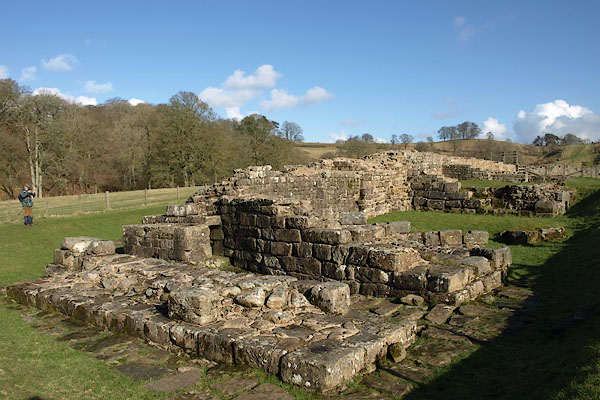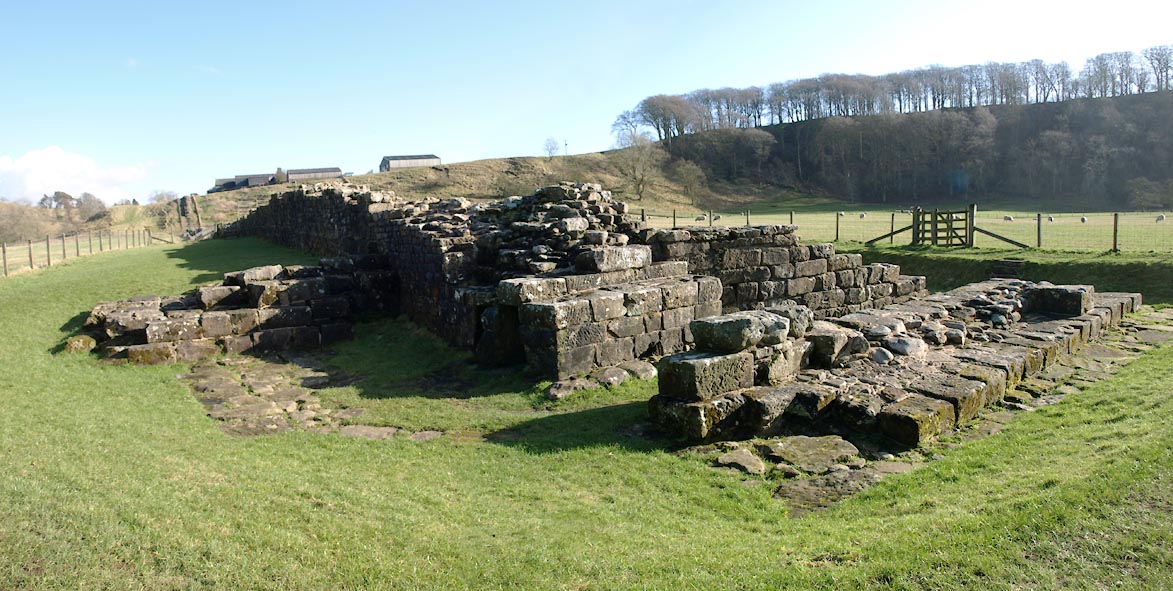





BUB48.jpg (taken 16.2.2011)

Click to enlarge
BUB47.jpg (taken 16.2.2011)
 goto source
goto sourcePage 226, Mr Horsley:- "..."
""At the Willoford on the east side of the river the military way seemed to be south of both walls, and at the head of the bank on the west side near Burdoswold there seemed to be a military way on the north of them both, which was pretty visible. If the appearance be not mistaken, this is the only instance of Severus's military way running out from between the two walls in their whole track. I saw no remains of a bridge, either at Poltross or Irthing. The bank of the river Irthing on the west side, to which the wall points, is very steep and high, but it seems to have become more so of late years from the falling away of the sandy bank. But the declivity on each side of the water must probably have been always considerable; because the military way here fetches a compass and goes sloping down the one side and up the other."
pp.198-199 "How the Wall crossed the river, and ascended the cliff which bounds the western bank, no remains are left to show. ... John Armstrong of the Crooks, Gilsland, told the author that, being employed in 1836 to build Willowford farm-house, he got stones from the Wall. At about sixty yards from the eastern bank of the river, as it now is, he came in contact with the 'landbreast' (abutment) of the bridge, which, he says, had evidently crossed the river. ..."
